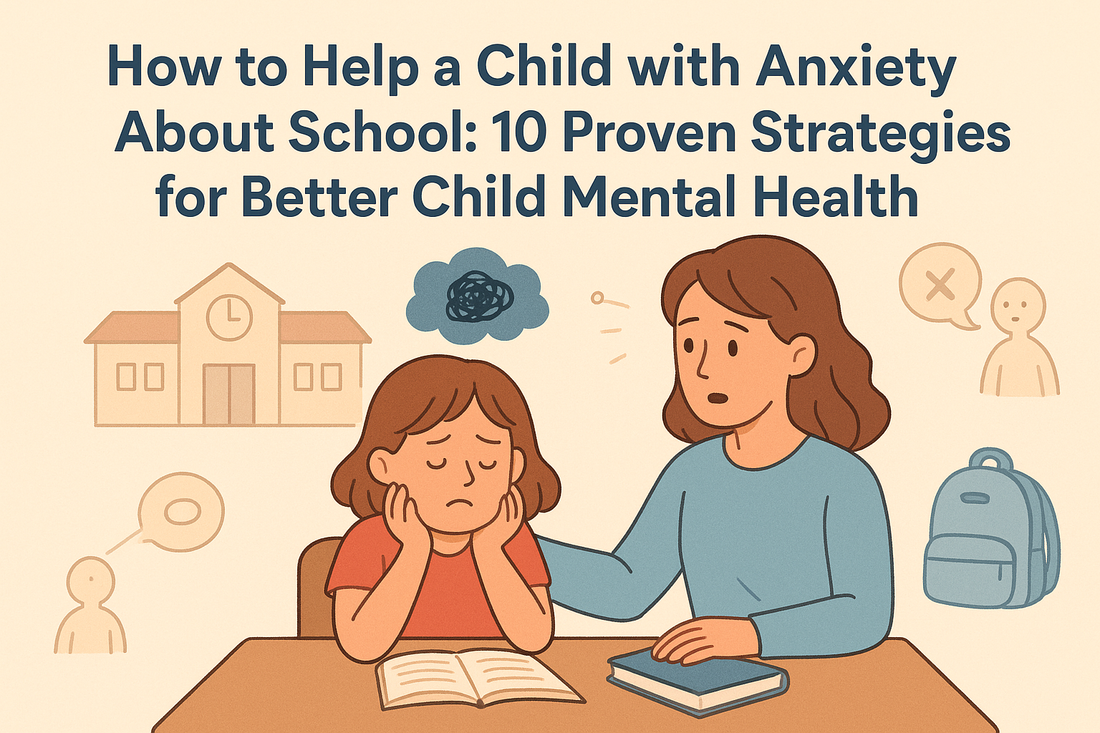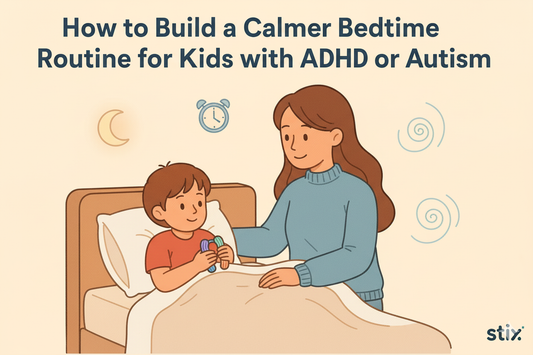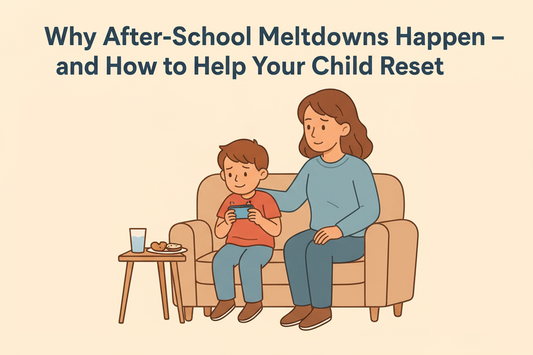How to Help a Child with Anxiety About School: Proven Strategies for Better Child Mental Health

How to Help a Child with Anxiety About School: 10 Proven Strategies for Better Child Mental Health
Child mental health has become a growing concern for parents, educators, and healthcare providers alike. In today’s fast-paced academic world, more children are experiencing school-based anxiety than ever before. Whether it’s fear of being separated from parents, pressure to perform well on exams, or difficulty fitting in socially, anxiety can impact a child’s happiness, learning, and overall well-being.
The good news? Parents and schools can take proactive steps to help children manage their worries and thrive in an academic setting. In this guide, we’ll explore practical strategies, parenting tips, and school-based interventions that can make a real difference.
Understanding Child Mental Health in the Context of School
Why School-Based Anxiety is on the Rise
In recent years, studies have shown a steady increase in childhood anxiety disorders, especially those tied to school. Factors such as standardized testing, social media comparisons, and limited access to mental health support play a role.
Common Signs of Anxiety in Children
Parents may notice signs like:
-
Frequent stomachaches or headaches before school
-
Irritability or anger when discussing school
-
Trouble sleeping on school nights
-
Withdrawal from friends or activities
The Link Between Academic Pressure and Emotional Well-Being
While a little stress can motivate kids, too much academic pressure leads to burnout and emotional distress. This makes early detection and support crucial.
Causes of School-Based Anxiety in Children
Fear of Separation from Parents
Younger children often fear being away from their caregivers, leading to separation anxiety that makes school drop-offs especially difficult.
Academic Pressure and Test Anxiety
Older children may worry excessively about grades, perfectionism, or disappointing teachers and parents.
Bullying and Peer Pressure
Bullying remains one of the leading causes of school refusal and emotional distress in kids.
Transition to New Classes or Schools
Changing environments, new teachers, and unfamiliar routines can trigger heightened anxiety.
Practical Strategies: How to Help a Child with Anxiety About School
Building Open Communication at Home
Start by creating a safe space where your child feels heard. Encourage them to talk openly about fears without judgment.
Creating a Calming Morning Routine
Rushed mornings can heighten anxiety. Establishing a predictable, calm routine helps children feel secure.
Encouraging Healthy Sleep and Nutrition
Proper rest and balanced meals fuel the brain, reducing emotional volatility and improving focus.
Teaching Relaxation and Mindfulness Techniques
Simple practices like deep breathing, guided imagery, or meditation apps can help children manage stress.
Collaborating with Teachers and School Counsellors
Work closely with the school staff to create a support plan tailored to your child’s needs. Teachers can provide reassurance and adjustments in the classroom.
Gradual Exposure to Reduce School Avoidance
If a child is avoiding school, start with short visits and gradually build up attendance. Small wins build confidence.
When to Seek Professional Help
If anxiety interferes with daily functioning, consulting a child psychologist or therapist is essential. Evidence-based therapies like Cognitive Behavioral Therapy (CBT) are proven to work.
Parenting Tips for Supporting Child Mental Health
Balancing Empathy with Structure
Show compassion, but also maintain routines and expectations. Over-accommodating can reinforce avoidance behaviors.
Promoting Resilience and Confidence
Encourage problem-solving, celebrate small achievements, and remind your child of their strengths.
FAQs About Child Anxiety and School
Q1: What are the early warning signs of school anxiety?
A: Complaints of physical illness, avoidance behaviours, and emotional outbursts are common red flags.
Q2: How can parents talk to teachers about their child’s anxiety?
A: Schedule a private meeting, share specific concerns, and collaborate on classroom strategies.
Q3: Should I let my child stay home if they have school anxiety?
A: Occasional breaks may help, but frequent absences can worsen avoidance. Gradual exposure is usually best.
Q4: What therapies work best for school-based anxiety?
A: Cognitive Behavioral Therapy (CBT), play therapy, and family counseling are effective.
Q5: Can school anxiety affect long-term child mental health?
A: Yes. Without support, it can lead to chronic anxiety, depression, or academic struggles.
Q6: When is it time to consult a child psychologist?
A: If anxiety interferes with school attendance, sleep, eating, or friendships, seek professional help immediately.



